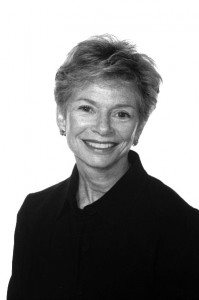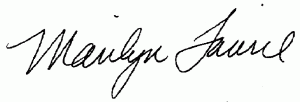This post is part of The Plank Center’s Legacies from Legends in PR Series that was begun in recognition of the 40th Anniversary of the Public Relations Student Society of America in 2007.
Served as president of Laurie Consulting. Previously, EVP of brand strategy and advertising at AT&T and a member of the company’s Management Executive Committee; SVP of public relations and chairman of the AT&T Foundation. Co-founder of Earth Day; trustee of Columbia University, the New York City Ballet and the New York Presbyterian Hospital. Elected to the Arthur W. Page Society Hall of Fame (2002) and served as chair of the society. Named one of the 100 Most Influential Columbia Alumni of all time.
The most polished skills, strategies and tactics are not enough to carry you from the role of practitioner to that of a trusted counselor. A solid knowledge of your corporation’s or your client’s business, good judgment born of experience and a broad understanding of public opinion and trends will bring authority to your advice. But you’ll never know how central integrity is until you’ve been through a few crises. And that may be too late. Virtually all reputation crises end up being tests of character and integrity.
Our business is crammed with pressures to subtly shade the truth–whether to tell powerful executives what they want to hear, to deny that we live in a transparent society and agree that potentially damaging facts can remain hidden, or to hype a brand until the marketing bears little resemblance to its real capabilities. Avoiding the details of complicated financial transactions – managing phony grassroots support groups, starting rumors on websites or paid word of mouth – it’s easy to just “go along.” Then, when big trouble hits (sooner or later it always does) and it’s time to tell the truth, tell it fast and take accountability for what went wrong. There’s no time to build credibility and trust with customers, the media–or your client.
Whoever you are counseling, when things get tough it will become critical that you have a history of consistently telling him or her the truth. What does it take to build that kind of close, trusting relationship?
- Learn the client’s business. Really. What’s the actual source of its success? What is the essence of the brand? What are the unspoken rules that drive the culture? Who are your allies on the business team? How relevant is your input?
- Listen deeply to all kinds of audiences–through all kinds of media–so you bring a convincing, uniquely “outside” perspective to the table. Then add big-picture analysis that helps put business decisions into a sound context.
- Leave your personal agenda, fancy models and formula solutions at home. Bring options that can lead to better and workable solutions for the challenge at hand.
- Don’t be intimidated. Always remember our job is to help the client do the right thing, not just communicate what he’s doing. And that takes guts, especially early in the game. You may be the only one in the room who isn’t ready to go with the flow. But don’t our jobs train us to question facile or backward-looking assumptions; to bring to the table voices that reflect the world the way it is, not the way we wish is? Aren’t our skills all about engaging productively with people who don’t agree with us? Aren’t we all about establishing credibility through dialogue and engagement? When it comes to issues of reputation, you may not be expected to be tough at the time, but you’re always expected to have been tough in hindsight!
- Finally, invest emotionally. It’s a lot easier to be heard when people feel you care whether they win or lose.
In short, the path to becoming a respected counselor is to be competent, be open to new ideas, be honest and above all, be true to yourself.
Published: 2007
* Deceased (1939-2010)
More on Marilyn Laurie:

